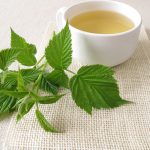Support heart health and fertility with raspberry leaf
 (NaturalHealth365) Raspberries are a delicious, healthy treat that just so happens to be a nutrient-rich superfood. But it might surprise you to learn that the plant’s leaves can offer just as many health benefits.
(NaturalHealth365) Raspberries are a delicious, healthy treat that just so happens to be a nutrient-rich superfood. But it might surprise you to learn that the plant’s leaves can offer just as many health benefits.
While raspberry leaves have been used for centuries as a natural remedy for many health conditions, they are just beginning to find their way on the radar of those looking to support heart function and women’s health. Raspberry leaves are very beneficial for women’s health and wellbeing – especially when combined with other health-boosting herbs.
Tiny green leaves packed with an ABUNDANCE of nutrients
When it comes to raspberry, the leaf and the berry have very different flavor profiles. The berry has a sweet, fruity flavor that may be somewhat tart or acidic, while the leaf is more reminiscent of black tea that is slightly astringent, thanks to the leaf’s natural tannins. It is caffeine-free, though.
The list of nutrients in the raspberry leaf is long. There are many vital minerals and vitamins in those tiny green leaves, including:
- Vitamin C
- Vitamin A
- Vitamin E
- Vitamin B1 & B2
- Manganese
- Selenium
- Calcium
- Tannins
- Magnesium
- Fragine
- Potassium
- Flavonoids
- Niacin
- Iron
Raspberry leaf tea each day can give you a healthy boost and make you feel great!
UNEXPECTED benefits: Promote heart health and hormone balance with raspberry leaves
Traditionally, raspberry leaves have been used to aid in pregnancy. This is because they contain fragine, a beneficial alkaloid that supports uterine health while toning and strengthening the muscles of the uterine walls. Experts believe that fragine can stimulate labor and make childbirth easier. It also may ease labor pain while making delivery faster and easier. But it is not only pregnant women who can enjoy the many benefits of raspberry leaves. It is also commonly used to alleviate menstrual pain.
The potassium abundant in raspberry leaves helps improve heart function, benefitting the entire cardiovascular system and supporting healthy blood pressure levels.
Raspberry leaves also give your immunity a boost. They are rich in vitamin C, which promotes the production of white blood cells and helps your immune system function more efficiently and efficiently. Vitamin C also has powerful anti-inflammatory properties which can aid in supporting cartilage and joint function.
These anti-inflammatory properties can also help with skin issues. In fact, antioxidants and vitamins like C and E are great for giving your skin that healthy, vibrant glow of good health. However, it also reduces inflammation in the digestive tract, easing stomach aches, cramping, constipation, and bloating.
Fascinating enough, thanks to raspberry leaves’ ability to support natural hormone balance, they can help stimulate fertility in both women and men.
How to incorporate raspberry leaves into your diet?
The best and more common way to incorporate raspberry leaves into your diet is by consuming them as a hot tea. You can make a tea with just raspberry leaves, but you may find it is more beneficial (and palatable) to combine them with other healing herbs like peppermint, chamomile, or nettle. You can also steep it with some orange peel and cinnamon, crushed berries, or pieces of apple or pear.
Brewing raspberry leaf tea is simple:
- Heat your water until it is just about to boil. Remove from the heat.
- Add your tea bag, cover, and steep for 7 to 9 minutes
- Add raw, unfiltered honey to taste
- Enjoy!
You can drink this tea hot or cold. Making a tincture is another option.
Raspberry leaves have many health-boosting and healing properties. Adding them to your daily diet will give you the healthy boost you crave that will shine from the inside out.
Sources for this article include:
Naturalpedia.com
Natural-fertility-info.com
NIH.gov
SimpleLooseLeaf.com



